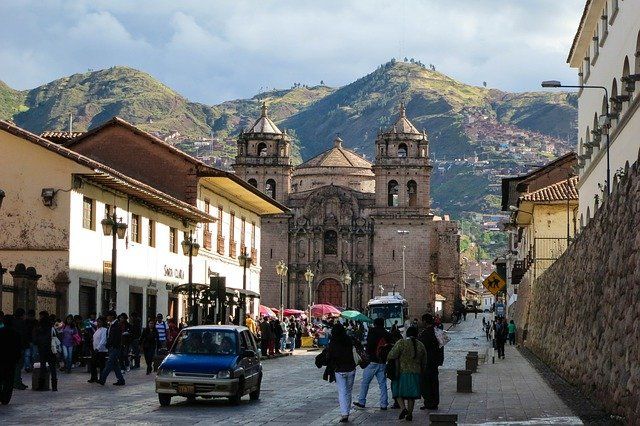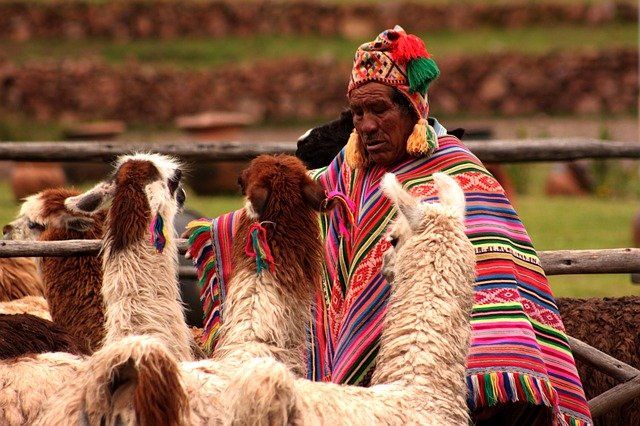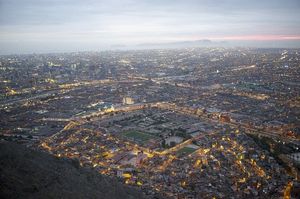Peru is the third largest country in South America, with a population of 26 million. In the distant past, most Peruvians lived in mountainous areas, but during the twentieth century many migrated to the coast or colonised the jungle regions. Peru’s main language is Spanish, although many still speak Quechua.
Until the sixteenth century the name of Christ was unknown in this land. When the Spaniards ‘discovered’ Peru, they imposed their Roman Catholic faith on the Incas. The native population responded by blending their pagan beliefs with Roman Catholicism, forming a ‘Christo-paganism’. This is still the basic religion in many rural areas.
Hard work
For centuries the Roman Catholic Church maintained a firm grip on the country. It was not until the twentieth century that Protestant missionaries were allowed to work openly in Peru. At first evangelisation was hard, and many of the early believers suffered greatly for their faith. But from 1950 onwards the Evangelical church started to grow rapidly, and currently is growing at over 5% per annum.
Evangelicals now account for 5.6% of the population. Many of them are members of Pentecostal or independent Charismatic churches. Other sizeable denominations are the Peruvian Evangelical Church, the Christian and Missionary Alliance, and the Baptists. The Reformed cause is small, being confined mainly to Presbyterians and Grace Baptists.

Positive characteristics
Peruvian Evangelicals have some attractive characteristics. Although Peru is rich in natural resources, most people live in great poverty. Many believers struggle to eke out a living, and it is wonderful to see their faith in God, as they look to the Lord to supply their daily needs. Despite their poverty, they manifest great joy in the Lord, and are keen to share the gospel with family and friends.
They also have a great hunger for God’s Word. This is partly due to their Roman Catholic background. For many years they were either not taught the Bible at all or were positively misled as to what it teaches. In their new-found love for Christ, they are keen to discover what God really does say in his Word. In many church services there is still an emphasis on preaching.
Given that 50% of Peruvians are under the age of twenty, most Evangelical churches have a large proportion of young people. The majority of these are students, and keep their pastors ‘on their toes’ with a variety of questions! Many of them are preparing for professional careers and we can expect to see a growing influence of Evangelicals within Peruvian society in coming years.
Missionary vision

The Evangelical church in Peru is also developing an increased missionary vision. Churches are sending out evangelists to reach fellow-Peruvians. This is happening particularly from large urban churches where believers have the financial resources to support such workers.
These evangelists are in a real sense ‘missionaries’, and often cross cultural and linguistic barriers in order to preach the gospel in relatively unevangelised areas of Peru.
The next stage in this process is the sending out of Peruvian missionaries to other parts of the world. This is already happening, and missionaries from Peru have been sent to countries as far away as Mexico, Morocco, India and England.
Problems
However, to balance the above picture, it must also be recognised that there are considerable problems in the churches. Many evangelists, in their desire to win people for Christ, major on man’s need to respond to the gospel rather than on ensuring a full understanding of the true gospel.
This man-centred emphasis has led to a proliferation of ‘decisions’ for Christ. In many cases these decisions have not been matched by a change of life, and people have either become nominal ‘Evangelicals’ or have soon returned to their old way of life.

A related problem is an excessive emphasis on Christian activity. New believers are quickly encouraged to get involved in many aspects of church life. The danger here is that the spiritual life of the believers becomes dependent on the sheer pace of church-related activities, rather than on a close personal walk with God.
False sects
When the church is growing fast, pastors often give much time to evangelism and follow-up, and little time to helping believers deepen their understanding of the Christian faith. This has resulted in a superficiality that is often reflected both in the ethical life of believers and in the worship of the church. Such ‘worship’ is characterised by much joyful singing, but little sense of reverence and godly fear.
Peru has its share of false sects, and their teachings often confuse new believers. In the 1970s and 1980s, Liberation Theology threatened to infiltrate the Evangelical church, but since the 1990s the real danger has been ‘prosperity teaching’.
Many young believers are seduced by the idea that God wants them to be rich! The Charismatic movement has also introduced false teaching and erroneous practices, all of which tend to mislead or confuse believers.
Challenges

The urgent need of the Evangelical church in Peru is for the proper training of its pastors and elders. They need to be taught more deeply in the Word of God and be encouraged to develop a coherent theological understanding of the gospel and the Christian life.
They need to be enthused with the idea of ministering God’s Word in an expository manner. Peruvian preachers are great orators, but their preaching often lacks biblical content and doctrinal substance.
Despite their poverty, believers in Peru do spend money on Christian books. Although some church leaders are discerning, and invest in good commentaries and theological works, a large proportion of believers buy books that are anecdotal in nature and major on dramatic spiritual experiences.
Publishing houses in the USA are expanding to meet the growing demand for Evangelical books in Latin America, but there is a real need for agencies such as Banner of Truth or Evangelical Press to make good books available in Spanish. These can then be used, under God’s blessing, to strengthen the body of Christ in Peru




